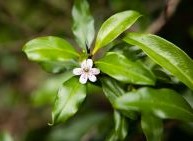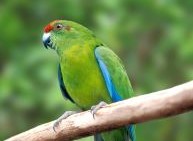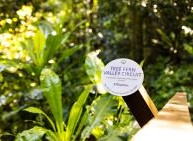What is High Pathogenicity Avian Influenza (HPAI)?
HPAI (or ‘bird flu’) is a viral disease of birds that is highly contagious and often highly deadly in poultry.
HPAI H5N1 virus
One strain of HPAI (H5N1 clade 2.3.4.4b) has been causing unusual outbreaks of disease and mass mortalities in wild birds throughout the Americas, Europe, Asia and Africa, and more recently in Antarctica. The disease primarily affects birds’ lungs and their ability to breathe. HPAI H5N1 has also spilled over into some mammals – and has caused mass mortalities of seals and sealions in South America.
Australia and Norfolk Island remain free from H5N1. However, we have seen this disease spread rapidly overseas and we must be prepared for the possibility for it to arrive in Australia. The HPAI H5N1 virus is highly contagious and can transmit to other bird species and mammals that share their environment with infected birds. Rapid detection and response will be vital for managing any outbreaks.
What is the risk of the H1N5 strain arriving on Norfolk Island?
HPAI H5N1 has not been detected on Norfolk Island. However, the virus could potentially arrive via vagrant or migratory seabirds travelling across the ocean.
How is HPAI virus transmitted?
-
The HPAI H5N1 virus is spread between birds via infected faeces, respiratory droplets and close contact. Birds can also become infected through contact with products sourced from infected birds including their meat, eggs, and feathers.
-
The HPAI H5N1 virus can be spread from birds to humans through direct interaction with infected birds.
-
While the HPAI virus can spread from animals to humans, human infections are rare and the risk to Australians is very low.
-
Mammals that come into close contact with infected birds, or that are predators or scavengers of infected birds, may also be susceptible to infection.
-
People can spread HPAI virus by exposing birds to contaminated clothing / footwear, equipment or food.
What can we do about it?
Various Norfolk Island agencies, including Norfolk Island Regional Council (NIRC), Department of Infrastructure, Transport, Regional Development, Communications and the Arts (DITRDCA), Department of Agriculture, Fisheries and Forestry (DAFF), Norfolk Island National Park, and the Norfolk Marine Park managers, are taking proactive measures in preparation for the possibility of an HPAI outbreak, including:
-
preparing a response plan for HPAI incidents in Norfolk Island National Park and Botanic Garden, and Norfolk Marine Park
-
working with staff from the Northern Australian Quarantine Service (NAQS) in DAFF to provide information to the community and initiate a surveillance program on Norfolk Island
-
establishing a dedicated volunteer group to assist with ongoing surveillance at key seabird sites across the island
-
continuing to review reports of HPAI cases on adjacent migratory paths and wildlife breeding grounds and providing updates to the NI community as needed.
How you can help
Avoid contact with sick or dead and report any unusual sightings to NIRC Customer Care (0100) or Norfolk Island National Park (53218) or call the Emergency Animal Disease Hotline on 1800 675 888.
Please provide as much information as you can, including images and video if possible.
Please note: If you encounter sick or dead wild birds and suspect avian influenza, do not handle any birds but report them on the numbers listed above.
Signs to look out for in wild birds
Signs of disease usually appear in several or all birds in a flock, including:
-
sudden death
-
lethargy or reluctance to walk, eat or drink
-
droopy appearance or ruffled feathers
-
head or limb swelling
-
bruising of the wattle, comb, feet or skin
-
respiratory signs such as panting, nasal discharge or sneezing
-
diarrhoea
-
unusual head or neck posture, incoordination, inability to walk or stand
-
unusual reduction in egg production.
Avian influenza can only be confirmed through laboratory testing of samples collected by a veterinarian or government animal health officer.
More information
Sign up for Norfolk news
Sign up for our monthly newsletter to receive updates about Norfolk Island National Park.




